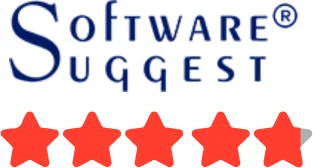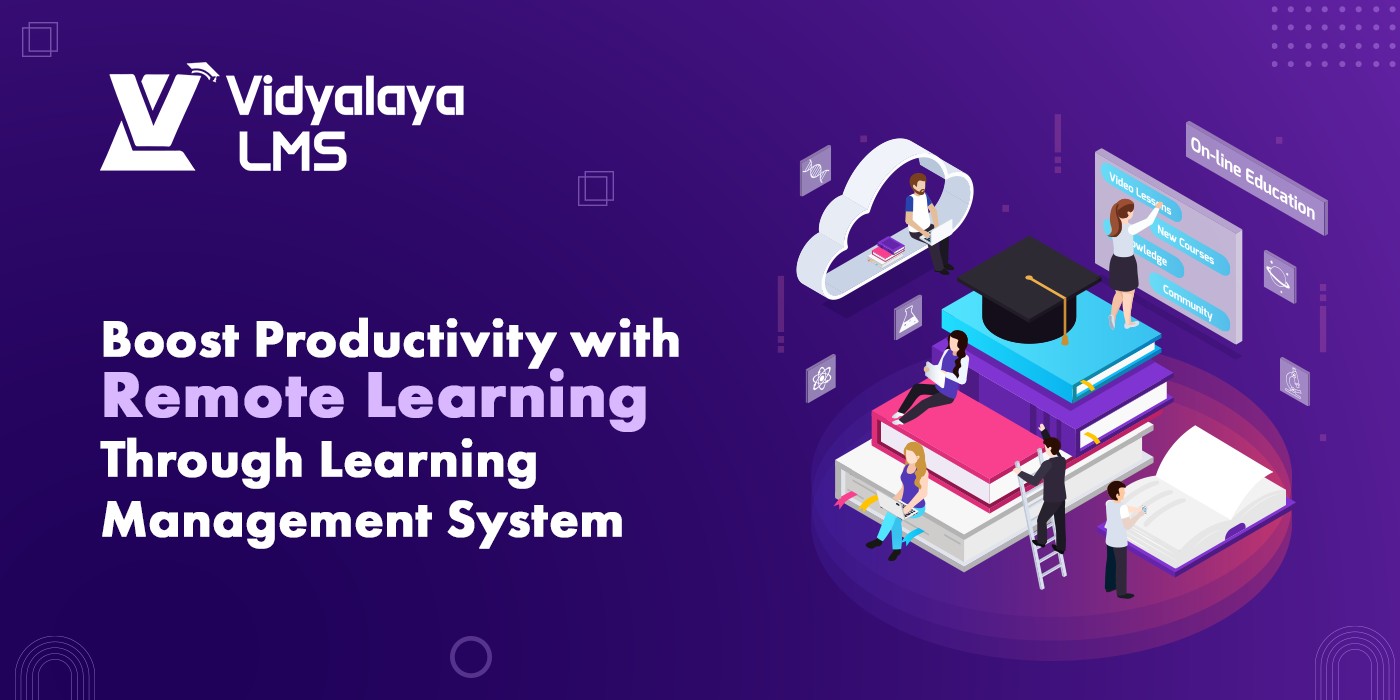A Learning management system may be a perfect choice for your institute, but the next question that arises is whether to go with a cloud-based LMS system or an on-premise system. You must have encountered the revolutionary transformation dominated by cloud computing and may be lured to adopt the approach. Before stepping into its shoes, get a wholesome idea about the systems based on it and how your institute can become the beneficiary after the adoption. Know what a cloud-based Learning management system is and its top 10 benefits!
What is a Cloud-based Learning Management System?
A cloud-based Learning Management Software is a medium to create, manage, organize, coordinate, deliver, and track learning and development initiatives within your institute without installing specific hardware/software on user systems. Users access the application and data stored in the cloud through a web portal. This option delivers great advantages as compared to traditional on-premises systems in terms of accessibility, flexibility, and efficiency.
Top 10 Benefits of Cloud-based LMS System!
A Cloud-based Learning Management System has enormous benefits, but we have listed the top 10 of them here. Have a look!
1. Great Accessibility:
The Cloud-based systems overrule the traditional on-premises systems on accessibility. Users of the cloud-based learning management system can access the data and applications from any corner of the world with just a reliable internet connection and an internet-enabled device. This mobile learning experience facilitates users to learn from anywhere, anytime. Glance at the image below to know more:
This depicts the success of a cloud-based LMS system, and users are really enjoying the benefits of remote learning. Features like Single Sign-On (SSO) and advanced encryption ensure secure and authorized access to the data and application. This option is also helpful in promoting continuous learning for remote and hybrid learners.
2. Affordable Solution:
Cloud-based Learning management software offers another benefit of a cost-saving option. They cut down the costs significantly by removing the dependency on computer hardware and infrastructure. Also, cloud-based LMS system vendors provide exclusive support that eliminates the need for an in-house team and makes the solution cost-effective in the short and long term. Auto-update of these systems reduces your overhead for upgrade installation. Vendors facilitate users with timely upgrades consisting of new features that give you more control, customization, and better security.
3. Easy to Set Up, Update, and Operate:
Cloud-based learning management software is easy to install as they are built with the consideration of a large user base on various devices. This raises the need for a user-friendly interface with plenty of resources to get started. Cloud-based LMS systems are easier to deploy than their on-premises counterparts. It enables you to start course creation and learning program setup without getting tangled in the lengthy installation process. The LMS provider manages the upgrades, so there is no need for technical expertise to have an optimal experience. The system itself works on improving speed, availability, and ease of use.
4. Effortless Scaling:
A cloud-based learning management system is beneficial in terms of scalability. It can grow with your institute—as you add learners/tutors, the LMS will match the growth. With the scalability feature, institutes need not purchase new programs or install more software. One can easily add/delete educational programs and courses to the existing ones. This enables institutes to adapt to the changing needs of modern education quickly. As the number of students grows or shrinks, the platform scales up or down without burdening the institutional infrastructure. Adding new courses or updating existing ones can be accomplished with ease and efficiency with the help of cloud-based Learning management software.
5. Seamless Integration:
One of the flaws of a hosted application is that it requires a massive effort to connect to third-party services. Manual working of this needs investment of massive manpower and time. Cloud-based learning management software resides on the other side, as it has built-in integrations. Such LMS systems seamlessly integrate with other software and allow a lean and efficient tech stack to organize the learning material.
6. Mobile Compatibility:
Cloud-based LMS is completely mobile compatible and thus allows users to access the courses and learning material from various mobile devices. Some advanced LMS systems also provide real-time reporting that gives fruitful insights. LMS systems with responsive designs ensure that the user interface is compatible with the device’s size. This is really helpful for users to learn from any device and take the learning on any device, wherever they go. With this, a cloud-based learning management system contributes to improving the student retention ratio in the learning process.
7. Increased Storage:
Storage has become a big concern for institutes as it requires a significant budget, and with the increasing amount of learning material, this concern pays the cost. Investing in data servers is not a cost-efficient option for various institutes. The solution to this problem is a cloud-based LMS system. It uploads all your data directly to the LMS and frees up the local space on your devices and hard drives. It also enables content creators to share files without worrying about file or account size.
8. More secure Option:
Cloud-based Learning management software is a preferable choice because of its high-end security features. Users can share content without bearing concerns about data being stolen or lost. These platforms are better encrypted and safer to use. Advanced LMS systems strengthen security with features like SSL, role-based access privileges, single sign-on, etc.
9. No Management Overhead:
As a cloud-based LMS system is not installed on the institute’s hardware system, it eliminates the management. LMS vendors themselves manage the entire system, and you just have to log in and start your workflows.
10. High-quality Learner Experience:
A cloud-based Learning management software offers a high-quality learner experience with faster and more efficient accessibility. Smooth integrations expand the functionalities and expose learners to a wider experience. Modern LMS systems are equipped with gamification, simulations, and social skills that create learner-centric, engaging learning experiences without additional effort.
Wrapping Up!
Online learning has taken learning to the next level with improved engagement and features. Additionally, cloud technology enriches this and offers flexible accessibility and freedom to access data from any internet-enabled device. While requirements are constantly changing in the education sector, a cloud-based LMS system is a perfect product to hit the bull’s eye.
Vidyalaya is a popular choice for educational institutes that understand your vision and empower your learning culture. Our cloud-based Learning management software ensures you get seamless and the best learning experiences possible. Our ability to create, manage, and deliver learning content enables educators to manage daily workflows efficiently and blend futuristic technology into the learning process. If the above-mentioned benefits lured you to go with the cloud-based Learning management system, then we are here to help you!



























